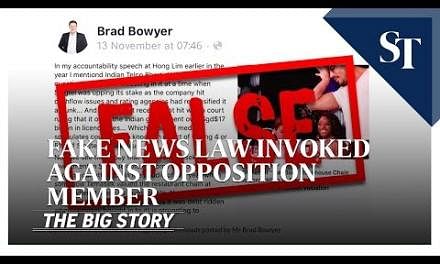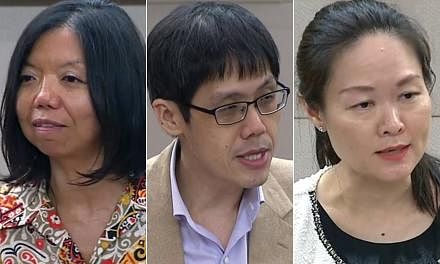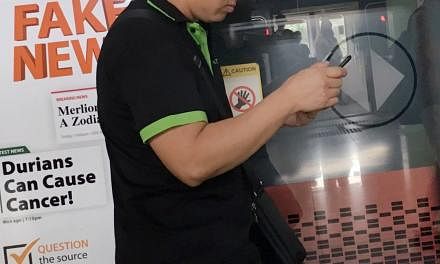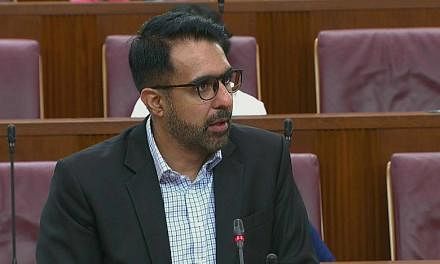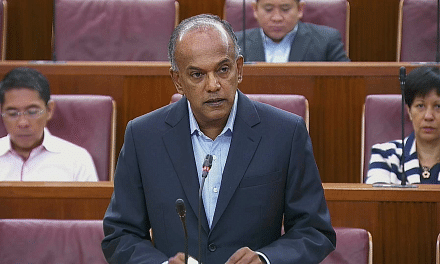Progress Singapore Party (PSP) member Brad Bowyer, the first person to be asked to correct his Facebook post under Singapore's new law against fake news, has indicated that he may appeal against the order.
In a Facebook post yesterday, he said: "Currently, I am still studying the final implementation of the legislation and its processes and so reserve my right to appeal at the appropriate time and in the appropriate manner."
Under the Protection from Online Falsehoods and Manipulation Act (Pofma), ministers decide whether to act against a piece of falsehood on the Internet, and can order that it be taken down or ask for corrections to be put up alongside it.
A person who wants to appeal is still required to put up the correction notice first before writing to the minister to appeal his decision.
If the appeal fails, the person can appeal to the High Court. Such an appeal can be heard as early as nine days after initiating a challenge to the minister. The appeal will cost the defendant $200, with no charge for the first three days of court hearing.
Pofma was used for the first time on Monday, when Mr Bowyer was directed to correct false statements he had made about investments by GIC, Temasek and other government-linked companies in a Nov 13 Facebook post.
Finance Minister Heng Swee Keat - who is also Deputy Prime Minister - had instructed the Pofma Office to issue a correction direction, which required Mr Bowyer to put up in full a correction note along with his post, which is still online. Mr Bowyer did so on the same day.
The Finance Ministry said the post "contains clearly false statements of fact, and undermines public trust in the Government".
Those who disregard orders under Pofma can be criminally sanctioned.
Pofma, which was passed in May and took effect on Oct 2, is designed to stop the spread of falsehoods on the Internet. Two criteria must be fulfilled before it can be used. First, there must be a false statement of fact and second, it must be in the public interest to have it corrected or removed.
The law does not cover opinions, criticisms, satire or parody.


